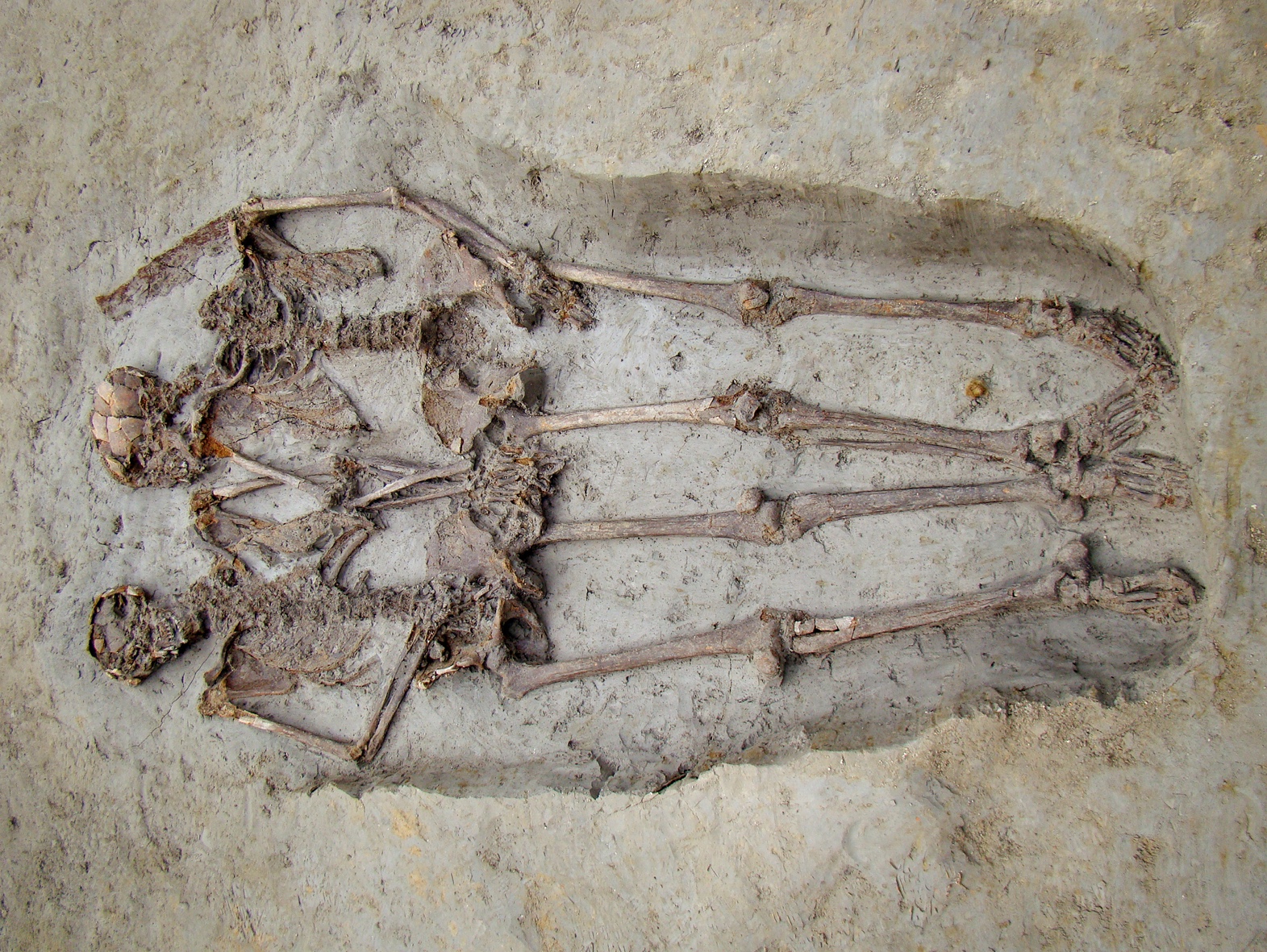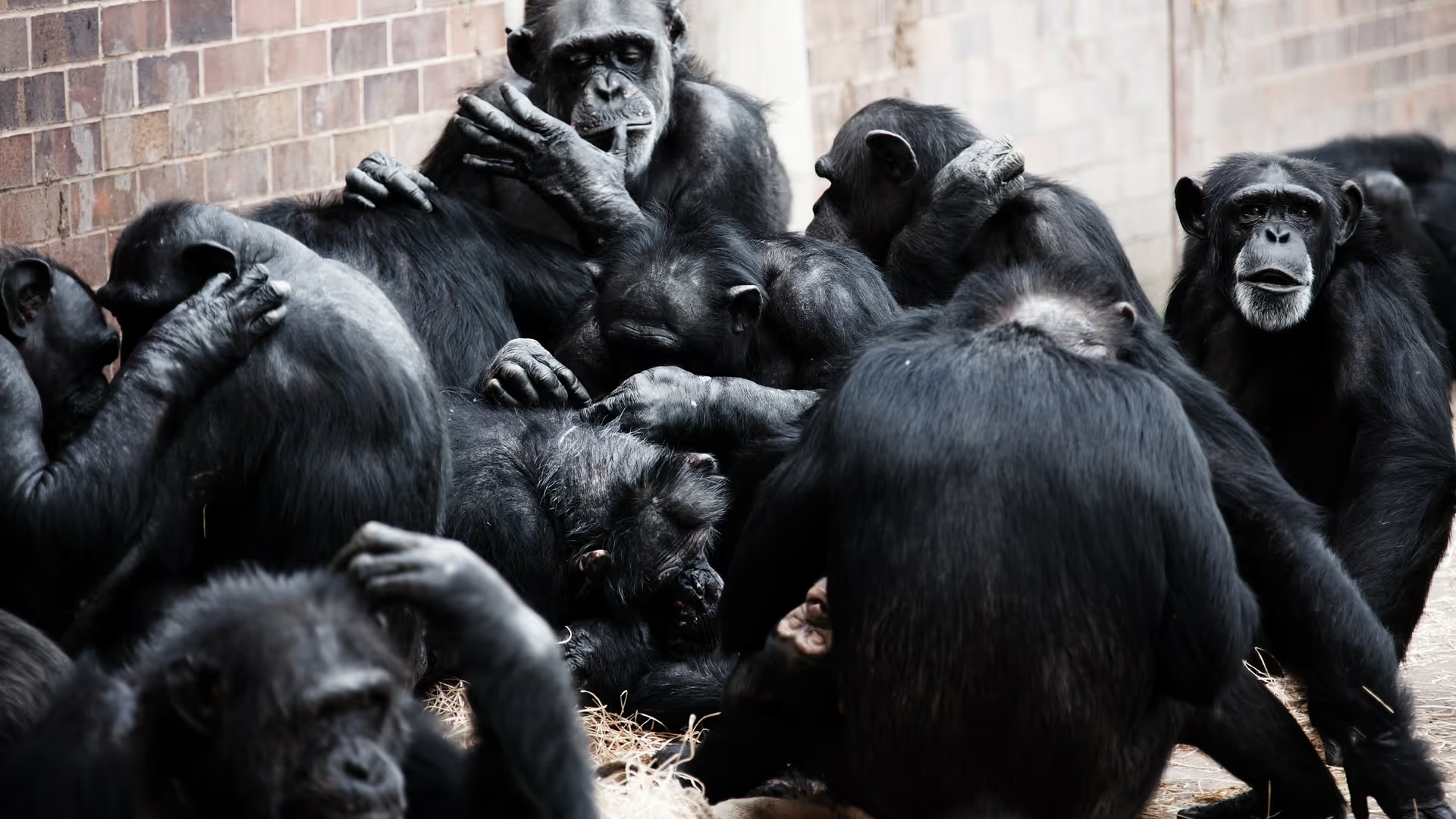Category: Anthropology
Events:
Articles:

December 16, 2025
An Anthropologist’s Perspective on Sex and Gender in the Skeleton
Anthropological methods show that skeletal sex is an estimate, not a certainty, revealing the limits of binary claims about human identity.

June 17, 2025
Hobbled by Hobbes. How Chimpanzees Became Nasty, Brutish And Short
Flawed science and cultural bias shape our beliefs about the evolution of violence.
_at_UNHQ_in_New_York_01.jpg)
June 3, 2025
Genocidal Altruists. How Do We Make Sense Of Human Nature?
Are we wired for war or built for peace? Our evolutionary past suggests we’re capable of both.

May 6, 2025
Same-Sex Sexual Behavior in Chimpanzees Challenge Our Gendered Biases About Evolution
The big question is, how did we manage to miss these behaviors in chimpanzees for so long?

March 4, 2025
Did Paleolithic People Suffer From Kidney Disease?
Paleo-type diets by limiting salt and sugar should help limit damage to the blood vessels in the kidneys and other organ systems.

January 23, 2025
The ProSocial World Paradigm: How Anthropology, Indigenous Wisdom, and the Evolved Nest Could Save Our Societies
We can cling to systems that fragment and isolate us, or we can embrace a ProSocial worldview that encourages connection, nurtures well-being, and aligns with our evolutionary nature.

July 16, 2024
The Future of the Ancestral Health Movement
In the scarce environment of our ancestral past, having a preference for highly sweet and fatty foods had real survival and reproductive advantages.

June 26, 2024
The Indigenous Notions of Kincentricity and Reciprocity: The Keys To Sustainability and Climate Change
Indigenous cultures around the world have long held ecological wisdom rooted in their spiritual and cultural beliefs that scientists are only now coming to understand.

February 2, 2024
Functional Frivolity: The Evolution and Development of the Human Brain Through Play
Play is not frivolous but is an adaptation designed to guide proper cognitive development in human children.

November 14, 2023
Why Religious Extremism is Maladaptive
Religious systems that lose their adaptability become dangerous to the societies in which they exist, and to themselves, because they absolutize the relative.

July 31, 2023
Cultural Evolution, Insight, and Fundamental Theories of Consciousness
Since cultural evolution is fueled by the creative efforts of human minds which, by anyone’s definition, are conscious, it would seem that consciousness plays a central role in cultural evolution.


September 8, 2021
New Funding Opportunities to Address Hot Topics in Cultural Evolution
Researchers of cultural evolution may leverage this understanding to enable them to predict (and potentially intervene) in key domains of great global concern.

May 25, 2020
Cooperation Through Cultural Group Selection
Cultural forces are far greater than genetic predisposition or geographic proximity in promoting cooperation with nonkin.

May 10, 2019
Group Selection in Every Way Except Using the Words: A Critique of "The Goodness Paradox" by Richard Wrangham
Wrangham's new book on the evolution of cooperation gets many things right. But he errs in thinking that he can develop his thesis without invoking group selection.

January 25, 2019
Fa’asamoa of Tattooing and Football: Conservatism and Adaptation in Samoan Cultural Evolution
Two new books published in 2018 emphasize the role of fa’asamoa in amplifying “sticky” cultural concepts or memes—football and tattooing—in cultural adaptation.

November 28, 2018
Fighting for the Middle Ground: David Sloan Wilson Interviews Holly Dunsworth on the Ethics of Teaching Evolution
In a world that is being ripped apart by polarized views and fake news, scientific discourse might be the last bastion of constructive disagreement based on respect for objective knowledge.

September 27, 2018
The Obstetrical Dilemma, Dismantled: Human Childbirth is Not a Dilemma
Rather than being evicted from the womb before their heads are too big, a new hypothesis argues that human babies are born when their growth rates become too costly for their mothers’ metabolism to support.

July 26, 2018
Mismatch: An Interview with Mark van Vugt
Human psychology evolved over millions of years in relatively stable environments in small-scale communities. But, in the modern world, evolutionary mismatch can occur where a trait adapted for one environment is out of place where we live today.

December 6, 2017
Solving Friction with Fiction: Cooperation, Co-ordination, and the Evolution of Hunter-Gatherer Storytelling
Storytelling may help to solve problems of co-ordination in hunter-gatherer societies in order to promote cooperation.

October 16, 2017
Learning from Arizona State University about Inter-Disciplinarity: A Conversation with Robert Boyd
Inter-disciplinarity is something that most universities want but might not be able to achieve without organizational change.

January 10, 2017
Cultural Anthropology and Cultural Evolution: Tear Down This Wall! A Conversation with Robert Paul
Robert Paul is one of a very few cultural anthropologists who is contributing his extensive ethnographic knowledge to the modern study of cultural evolution.

January 2, 2017
Bridging the Gap Between Laboratory and Field
To gain a holistic understanding of social evolution, we need to consider cumulative evidence, completing the puzzle one piece at a time. And to do that, we need to move back and forth between field and lab studies.

December 30, 2016
Defining and Implementing Field Sites in Cultural Evolution Science
If field sites are cross-cultural, multi-method, and collaborative across disciplines, however, they can improve the quality of our field, and help us make major steps toward understanding the evolution of human behavior.

December 27, 2016
On Field Sites for the Study of Cultural Evolution
How might we create a field site concept for cultural evolution that provides depth and breadth but that is based on new data?

November 10, 2016
Developing the Field Site Concept for the Study of Cultural Evolution: A Sociologist’s Perspective
If sociologists come to recognize that sociality and group process underlie the evolution of our species and are inherent in our biology, the use of field sites will become not just a means of framing sociological research but a clarion call for transdisciplinary recognition of the centrality of our discipline.

October 19, 2016
Developing the Field Site Concept for the Study of Cultural Evolution: Introduction
Together with commentaries by authors with diverse perspectives on field research, we hope to catalyze the formation of field sites for the study of cultural evolution around the world.

October 19, 2016
Developing the Field Site Concept for the Study of Cultural Evolution: An Anthropologist’s View
Cultural evolution research faces many challenges in the years to come. One of the most fundamental, perhaps, is to establish the extent to which cultural evolution is Darwinian.

October 3, 2016
Developing the Field Site Concept for the Study of Cultural Evolution: An Evolutionary Biologist’s View
The human capacity to transmit large amounts of learned information across generations is now properly seen as both a product of genetic evolution and a process of evolution in its own right.
our newsletter
